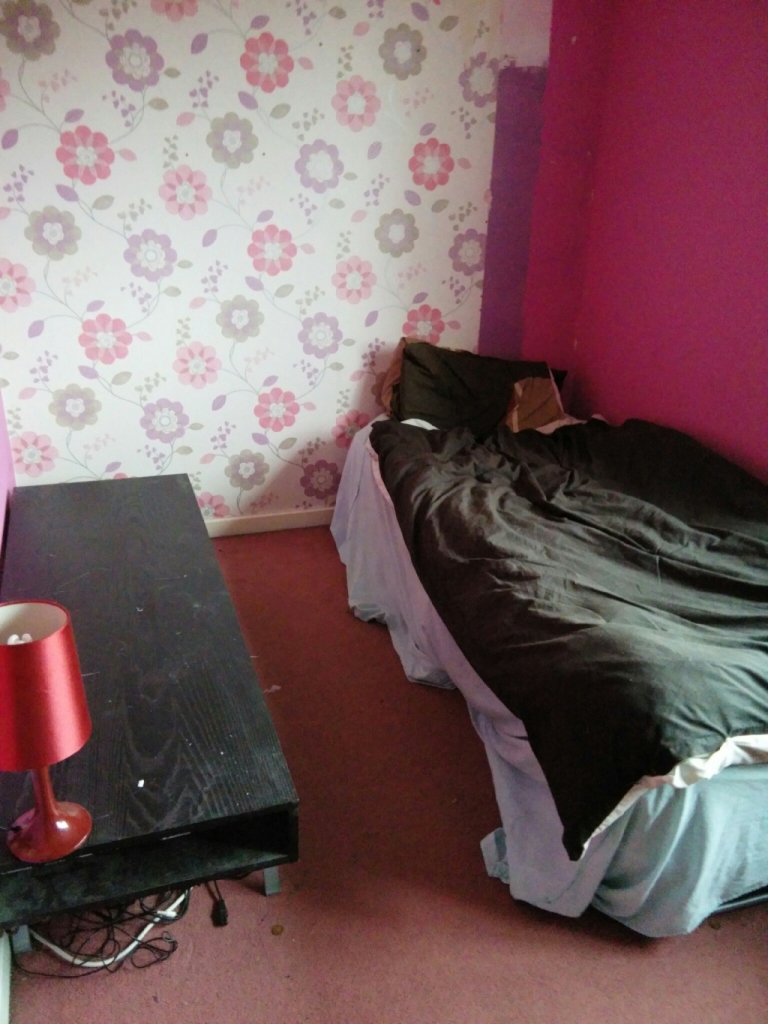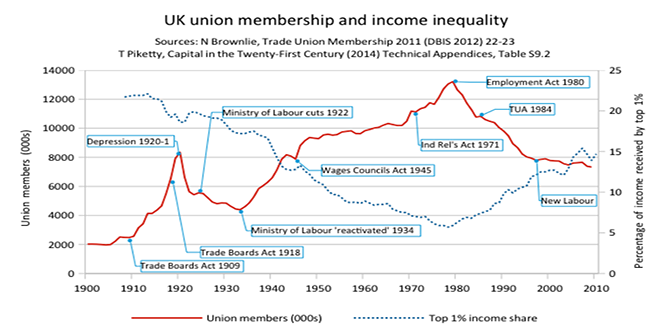 A new blog launched today by Eileen Herden and colleagues at LSE Housing and Communities, My Spare Room, documents through photographs and first-hand accounts those hit by the government’s punitive ‘bedroom tax’. Here she introduces the new site and explains its aims.
A new blog launched today by Eileen Herden and colleagues at LSE Housing and Communities, My Spare Room, documents through photographs and first-hand accounts those hit by the government’s punitive ‘bedroom tax’. Here she introduces the new site and explains its aims.
Earlier this year LSE Housing and Communities published Is Welfare Reform Working?, a study that followed 200 social housing tenants over two years in order to better understand the impact of welfare reform on individuals’ lives. Over a quarter of our sample had been affected by the bedroom tax since it was introduced in April 2013, and our research showed that this group was struggling financially and emotionally with the burden of having to cover the shortfall between their housing benefit and rent.
Of all of the people we spoke to, it was those hit with the bedroom tax who were most likely to cry on the phone, to be in unmanageable debt, to confess to problems with their mental health, and four of them even admitted to attempting suicide. Over 600,000 people are currently affected by the bedroom tax. They face a choice of paying £40-£100 a month to remain in their homes, or moving to new, often unsuitable, properties at their personal expense.
My Spare Room, launched today, is a new blog co-produced by LSE Housing and Communities and social housing tenants affected by the bedroom tax. The blog shares people’s stories of paying the bedroom tax along with photos they have taken of what has been identified as their ‘spare room’.
 The photographs are revealing. They show small and spartan rooms, often children’s bedrooms or box rooms that can barely fit substantial furniture, let alone a single bed. One image shows walls covered in mould, due to damp that has made the room uninhabitable.
The photographs are revealing. They show small and spartan rooms, often children’s bedrooms or box rooms that can barely fit substantial furniture, let alone a single bed. One image shows walls covered in mould, due to damp that has made the room uninhabitable.
In reading the entries on the blog it becomes evident what it means to go without an average of £14 a week for a group of people who are by definition already in precarious financial circumstances. Their stories illustrate how the bedroom tax gives rise to or exacerbates issues of debt, food and fuel poverty, unemployment, child poverty, and poor mental and physical health.
As more people share their experiences, recurring themes begin to emerge: losing a home of many years, the worry that comes with insecure tenancies, the problems that housing instability can create for children, the exhaustion that comes with years of surviving on insufficient income, and the loss of dignity experienced by people forced to turn to their family and friends for help and support.
In telling their stories, the contributors to My Spare Room also reflect on what it means to be a citizen of the UK in 2015. They raise pressing questions about notions of fairness in our society, how much people should care for each other’s wellbeing, the continued salience of a British class system, and the structural demonisation of the poor and the unemployed.
Through the regular posts on My Spare Room, people’s experiences of paying the bedroom tax can reach the rest of society. It is also a means of showing people affected by this legislation that they are not alone. One contributor to the blog wrote recently:
“It’s almost comforting to hear other stories and realise I am not the only one suffering from this cruel tax. Let’s hope the blog and the stories it contains gets the press rallying behind us all and starts a movement to rid the country of this penalisation of the poor.”
Through sharing these stories, My Spare Room hopes to invigorate a more nuanced and serious discussion around the bedroom tax. If you are paying the bedroom tax and would like to participate, please get in touch with us.
 Eileen Herden is a researcher at LSE Housing and Communities and a doctoral student in the Department of Social Policy at the London School of Economics. She is a co-author of the recent publication Is Welfare Reform Working?. You can reach her at e.herden@lse.ac.uk
Eileen Herden is a researcher at LSE Housing and Communities and a doctoral student in the Department of Social Policy at the London School of Economics. She is a co-author of the recent publication Is Welfare Reform Working?. You can reach her at e.herden@lse.ac.uk








Can I suggest that all tenants that are being forced to pay this ridiculous tax get their monies worth by inundating their local council with emergency repair requests.
That way,jobs will be created to complete the work.
Can I suggest you get that suspected Asbestos or that slight smell of gas.
I’ve heard some nonsense in my time but to say council housing,social housing etc; is a gift when there is a rent to be paid, beggars belief.Let this be clearly understood councils undertake to achieve maximum earnings (income) in their buisness so that they may operate and utilise monies used to provide services to their local community.
Rent is paid at a reduced rate from the true market rate; it is subsidized.
This man lives in Jersey,obviously has no idea whatsoever of the system in place.My rent is not subsidised.I am disabled and unemployed I pay the same rent as a millionaire would for the property I live in.
im not exaggerating. by the time they have finally finished trying to make me pay bedroom tax on a tiny boxroom of 45 sq ft usable floor space it will have cost the govt at least 24 thousand pounds of public money. they had me at 3, 1st tier tribunals. now upper tier at teh moment. it make go back to 1st tier for a 4th time or be decided at upper. if it goes back to 1st tier, i will obviously appeal and it could go on to upper again. im also trying to take it to the court of appeal as tehy have illegally took it to upper tier. in total it could double the current costs and then i would use right to buy anyway when it comes in. so it will all have been for nothing. and just totally wasted. even if they did make me pay. which i doubt they can. as it clearly is just a tiny boxroom. but teh most they would claw back would be 2 thousand. so it is purely spite and vengeance and wishing to punish poor people. thats just my case. there’s thousands of others. so how much is it all costing i wonder. likely many millions or even billions. all the extra paper work, court cases, legal aid court costs, dealing with all teh fallout problems, the DHPs. it is insanity. and teh only reason they are and have got away with it is teh media havent told the public all this. i live in about the cheapest area in the country for housing. the house is only worth about 50 thousand. 2 better than it houses right near me sold for 42 thousand and 45 thousand recently. they were better than my house. so we have the crazy situation that the tories are going to make the fight to try to make me pay bedroom tax on a tiny boxroom run into costs of more than teh whole house is worth. why isnt that in the media.
i have heard they are trying to do a form of bedroom tax on people that have bought or buying their own home now,i wonder whats going on it all seems a bit dodgy to me.
my story is that i have ended up in a four bed house through no fault of my own and now pay £28.00 out of our £115.00 jsa leaving me and my wife £87.00 for bills,food and council tax,the modernised house we had in the 90’s that we got after years of living in a hostle’s and some rough properties and areas we thought was a blessing only to be dissappointed a year later when the mould and damp came through and with no help from our council we tryed everything to battle it with no joy we could not get a move because of the problems and in the endafter years the council moved us away from our area where we felt was our home but it was our only choice then the council fit extractors,reline the walls with insulation and loads more when they had complaints from the new tennants,anyway within weeks my wife suffered anxiety attacks and depression saying she regretted moving to the area and wanted to go back to the area she felt was her friends and community,trouble with local yobs was also punishing and she suffered for a few years before i found a good mutual exchange that the council approved even though i told them i really only need a two bed as one of our sons was due to move out,that ok i was told.My wife was back to herself in no time and the house felt like a sanctuary and we spent every spare penny on it only to now be told we have this choice,like i try to tell them yes the house is to big but the one around us that would want to swap are back to the ones we escaped from years ago i dont want to go back to living next to people that want to punch you in the face just because they aint had a fag that morning or the screaming matches they have with there partners,the goverment doe’s not understand some people make a life in their house and there area making it a HOME,while others use it as doss hole surely exceptions should be made.
social housing doesnt have ensuite bathrooms or two bathrooms. if they are very very lucky they might have a second loo but usually they dont
Great article Eileen, so many people have been affected by this. Like Steven says, many people are getting charged for rooms that are simply “box rooms” not bedrooms. This is not an answer to the housing or cost of benefit problems, and is pushing more and more people into poverty.
this is just a social studies exercise. its not helpful to victims of the policy. only people getting their own stories in their own words out there might do that
The problem is with Ian duncan smith this man will never admit to getting anything wrong.Many Tory mp’s are now realising the terrible impact this disgusting and unfair tax is having on people.Duncan smith says his benefit reforms are helping people he is either deluded or just plain evil if he really thinks this.He constantly says DHP is the safety net but these payments are only a short term measure and people just cannot move due to lack of smaller properties available.People are either getting into massive debt or giving up secured tenancies to go into the private sector.This is a disgrace.Any decent human being would look at the gathering evidence suspend the tax and look at again in a couple of years when if the goverment is to be believed thousands more homes are built so that people can move. The problem is as i said Duncan smith is not decent he will never admit mistakes.People will continue suffering unless he is stopped and Cameron has proved time and time again he is not strong enough to do anything.Or perhaps he doesnt want to do anything.These are Tories after all.People wonder why Jeremy Corbyn is suddenly the flavour of the month perhaps its because he actually stands up for fairness and social justice.Something the tories no nothing about.
Please explain how this is a “tax”. A “tax” applies to income earned OR to goods/services bought or other transactions. Social housing is none of the above; rather, it is a legislative gift. Milliband never made a credible argument about this being a “tax”, perhaps someone else can.
Additionally, not only is social housing NOT an inalienable right (God-given right/Creator given right/natural right), but having a spare room on top of that is a frivolous expense (especially when you factor that the UK has a huge annual deficit and a huge debt). However, this is your opportunity to convince the British public that giving people on social housing a spare room is somehow a good investment.
Not inalienable no, unless of course you have an income that will allow you a mortgage. In that case the frivolous expense, huge annual deficits, and the British public are of no consequence, a handout is yours; take the spare room and the rest.
its not giving people a spare room tory. it making secure tenancies insecure so people are evicted. add on the other policies, the benefit cap, the cuts to low paid wages. the pay full market rent if you earn 30 thousand outside london or 40 thousand in london. the changing of secure tenancies to 5yr tenancies. the right to buy. the whole thing is about getting rid of social housing forever. where do you think these 100s of 1000s of people are going to live. private renting wont be an option as PR is set to soar and most dont accept people who get housing benefit anyway. so there will be a tsunami of homelessless. hope you like your destroyerd society tory created through the greed and sadistic nastiness such as you displayed above
But you haven’t stated how social housing is a God-given right/Creator-given right? Why should taxpayer money be funding someone else’s lifestyle? (ex. spare room; or as you say, “secure tenancy”). Additionally, how is it fair for some people to pay for their own homes, but other’s get their home’s paid by other people? In the scenario where the government provides too many benefits, then where is the incentive to work hard to pay your own way?
The British public rejected the Socialist policies of Labour and the Lib Dems. Why should policy go counter to the views of the public?
A tax is a levy or charge made against a person,this can be of the most ridiculous description,or what most people consider to be.Just for example a beard tax which in history was an actual charge made against people who wore beards.
The bedroom tax is in effect a total indiscriminate act affecting anyone and all people in social housing who have an extra “room” not occupied at nighttime.The reason I use “room” is because this is in many cases factual.There is no determined measurement in law, which is totally ridiculous.I have a room which is deemed to be a bedroom,which is 58 square feet,it has never been used as a bedroom and is used as a store box room.The government charge/levy/tax me on this £18 a week.
https://speye.wordpress.com/2015/09/10/anti-bedroom-tax-campaign-by-lse-and-has-is-a-joke/
A tax is defined as “a compulsory contribution to state revenue, levied by the government on workers’ income and business profits or added to the cost of some goods, services, and transactions.” In other words, a “tax” applies to income earned OR to goods/services bought or other transactions. A person receiving the legislative gift of social housing does not fit within the categories where a “tax” applies. Hence, the only valid use of the term “bedroom tax” applies to the purchase of a bedroom set (which is actually called a VAT). The use of the term “bedroom tax” as used by Ed Milliband and the Labour Party has been discredited by the British public, and the further use of that term does not further anyone’s cause.
i might be a bit thick but why is council tax called a tax then?and don’t call social housing a gift it is not our fault we don’t all have great jobs or mum and dad have died leaving us a small fortune,come on mate don’t be little people and remember, us not so ,(i think the word is) affluant people are the sort that you would rely on if a war broke out as they did with my dad and he didn’t have a pot to piddle in.i think our past generation earn’t us that right to a secure life other wise why not have just rolled over and let Hitler win and to be honest it feels like Hitler and his mob are running our country now anyway.I personally think the way our country is being run is a insult to all the people that were in world war two.
Nobody is being blamed for their own situation for the purpose of this article (regardless how they got to be in that situation). But when some person/entity (business, government, or charity, etc…) gives something (ex. housing) to another person who didn’t actually earn it, then it is a “gift”. I am not downgrading that, as it is bad public policy to have homelessness; but it is not a God-given/Creator-given/natural right to have public housing. Rather, it is other people’s money paying for this.
As far as I am concerned, if somebody/entity gave me a “gift” such as housing that I did not earn, then I would say “thank you”; but that is me. By no means is anybody else obligated to do the same.